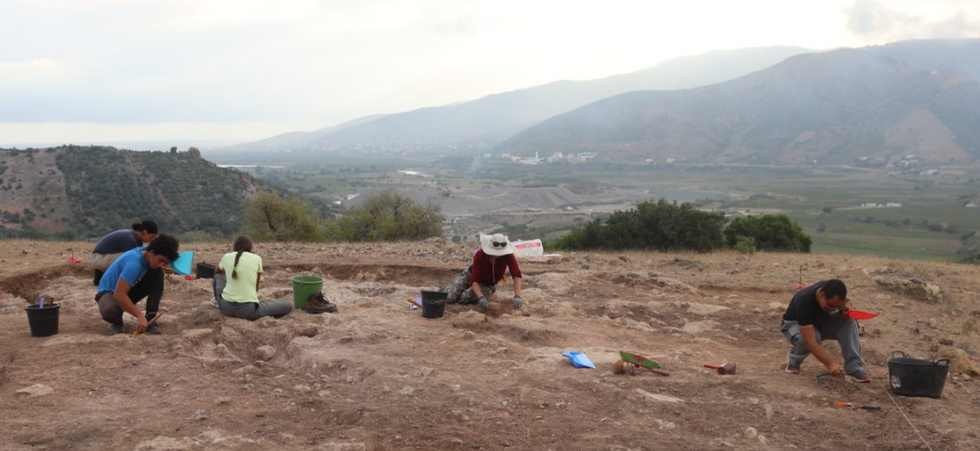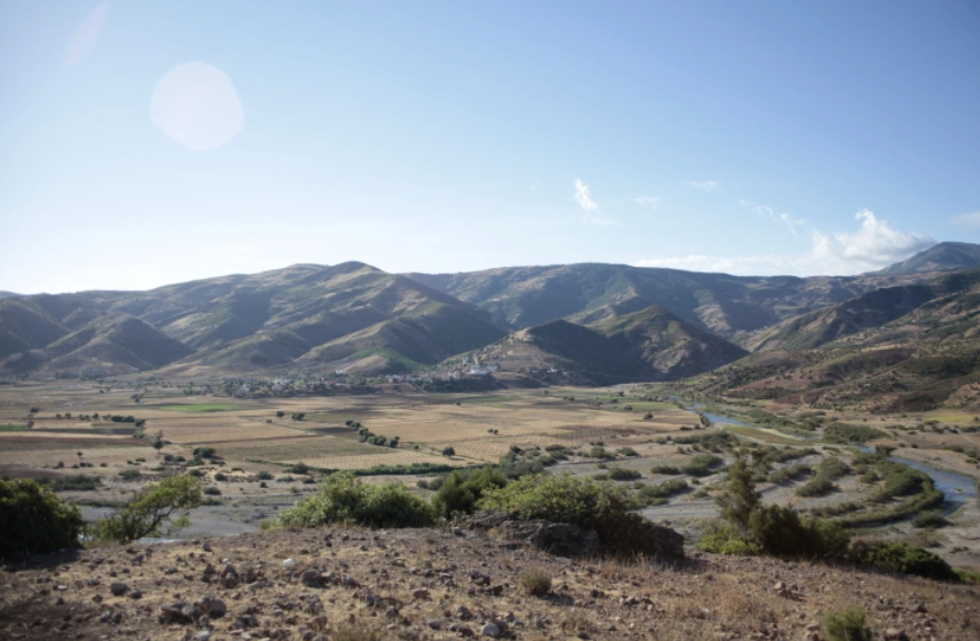Eliana Silver
Guest Reporter
Archaeological discoveries at Kach Kouch in Morocco are challenging long-held beliefs about North African history.
Researchers have uncovered evidence that the Maghreb region was not an empty land before Phoenician arrival around 800 BCE, as traditionally thought.
The findings reveal that stable agricultural settlements existed on the African Mediterranean coast more than 3,000 years ago.
This discovery, led by Morocco's National Institute of Archaeology, significantly expands our understanding of north-west Africa's prehistoric connections to the wider Mediterranean world.

The site was first identified in 1988 and initially excavated in 1992, with researchers originally believing it was inhabited between the 8th and 6th centuries BCE.
Nearly three decades later, a team conducted new excavations in 2021 and 2022 using cutting-edge technology including drones and 3D models.
These investigations, along with radiocarbon dating, revealed the settlement underwent three distinct phases of occupation between 2200 and 600 BCE.
The findings dramatically predate the Phoenician arrival by centuries.
MORE LIKE THIS:
The earliest documented remains at Kach Kouch, dating to 2200-2000 BCE, are sparse - just three pottery sherds, a flint flake and a cow bone. This scarcity may be due to erosion or temporary occupation during this phase.
In its second phase, the hill became permanently occupied from 1300 BCE. The inhabitants, likely numbering fewer than a hundred, established themselves as farmers and herders.
They created a sustainable community that would thrive for centuries.
These early settlers lived in circular dwellings built from wattle and daub, a technique combining wooden poles, reeds and mud. They dug silos into the rock to store their agricultural products.
Analysis shows they cultivated wheat, barley and legumes, while raising cattle, sheep, goats and pigs.
They used grinding stones for processing cereals, flint tools, and decorated pottery.
Remarkably, the site yielded the oldest known bronze object in north Africa outside Egypt - likely a scrap metal fragment.
Between the 8th and 7th centuries BCE, during the Mauretanian period, the inhabitants maintained their traditional culture whilst interacting with newly arrived Phoenicians.

Circular dwellings began to coexist with square ones made of stone and wattle and daub, combining Phoenician and local techniques. New crops appeared, including grapes and olives.
Wheel-made Phoenician ceramics and iron objects were introduced, showing cultural exchange rather than replacement.
Around 600 BCE, Kach Kouch was peacefully abandoned, with inhabitants likely moving to nearby settlements.
Kach Kouch is not merely the oldest known Bronze Age settlement in the Maghreb - it fundamentally reshapes our understanding of the region's prehistory.
The findings challenge traditional narratives influenced by colonial views that portrayed north-west Africa as empty and isolated until "civilised" by foreigners.
This discovery demonstrates that the Maghreb has been connected to other Mediterranean regions since prehistoric times.
It represents an opportunity to rewrite north Africa's history, giving it the visibility it has always deserved.
Find Out More...
Researchers have uncovered evidence that the Maghreb region was not an empty land before Phoenician arrival around 800 BCE, as traditionally thought.
The findings reveal that stable agricultural settlements existed on the African Mediterranean coast more than 3,000 years ago.
This discovery, led by Morocco's National Institute of Archaeology, significantly expands our understanding of north-west Africa's prehistoric connections to the wider Mediterranean world.

The site was first identified in 1988 and initially excavated in 1992, with researchers originally believing it was inhabited between the 8th and 6th centuries BCE.
Nearly three decades later, a team conducted new excavations in 2021 and 2022 using cutting-edge technology including drones and 3D models.
These investigations, along with radiocarbon dating, revealed the settlement underwent three distinct phases of occupation between 2200 and 600 BCE.
The findings dramatically predate the Phoenician arrival by centuries.
MORE LIKE THIS:
- Archaeology breakthrough as researchers uncover hundreds of skeletons in centuries-old grave site beneath a Debenhams
- Archaeology breakthrough as 'unprecedented' new Iron Age hoard discovered: 'It's unusual'
- Archaeology breakthrough as scientists discover mysterious 2,200-year-old pyramid filled with ancient coins and weapons
The earliest documented remains at Kach Kouch, dating to 2200-2000 BCE, are sparse - just three pottery sherds, a flint flake and a cow bone. This scarcity may be due to erosion or temporary occupation during this phase.
In its second phase, the hill became permanently occupied from 1300 BCE. The inhabitants, likely numbering fewer than a hundred, established themselves as farmers and herders.
They created a sustainable community that would thrive for centuries.
These early settlers lived in circular dwellings built from wattle and daub, a technique combining wooden poles, reeds and mud. They dug silos into the rock to store their agricultural products.
Analysis shows they cultivated wheat, barley and legumes, while raising cattle, sheep, goats and pigs.
They used grinding stones for processing cereals, flint tools, and decorated pottery.
Remarkably, the site yielded the oldest known bronze object in north Africa outside Egypt - likely a scrap metal fragment.
Between the 8th and 7th centuries BCE, during the Mauretanian period, the inhabitants maintained their traditional culture whilst interacting with newly arrived Phoenicians.

Circular dwellings began to coexist with square ones made of stone and wattle and daub, combining Phoenician and local techniques. New crops appeared, including grapes and olives.
Wheel-made Phoenician ceramics and iron objects were introduced, showing cultural exchange rather than replacement.
Around 600 BCE, Kach Kouch was peacefully abandoned, with inhabitants likely moving to nearby settlements.
Kach Kouch is not merely the oldest known Bronze Age settlement in the Maghreb - it fundamentally reshapes our understanding of the region's prehistory.
The findings challenge traditional narratives influenced by colonial views that portrayed north-west Africa as empty and isolated until "civilised" by foreigners.
This discovery demonstrates that the Maghreb has been connected to other Mediterranean regions since prehistoric times.
It represents an opportunity to rewrite north Africa's history, giving it the visibility it has always deserved.
Find Out More...
